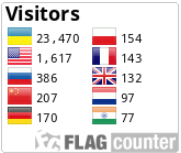PRACTICES AND PERSPECTIVES OF TEACHER TRAINEES UPON ONLINE LANGUAGE EDUCATION PROGRAMME
DOI:
https://doi.org/10.28925/2518-7635.2020.5.8Keywords:
teacher trainees, networking, online educationAbstract
The expansion of instructional technologies in education has made it possible to learn and teach a second or foreign language online, without recourse to face-to-face teaching. A great deal of information is available on the varying formats and relative efficacy of online language-learning programmes.
Teaching and learning is one of the core activities within higher education, such as universities and colleges. Almost every university in the USA now offers some type of computer online courses and most offer online programs in which all or most of the courses are taken via electronic means with a minimum of face to face real personal contact between instructor and student. There are many instructors and professors who claim that this electronic instruction is the future of teaching and the future of learning. Technology brings a lot of benefits to online classes such as flexibility, reduced costs, networking, documentation, increased student time, accessibility and self-discipline.
Instructional technologies have been used extensively after the spread of COVID19. Council of Higher Education in Turkey closed down all the universities and embarked on online education by issuing a statement that all universities were free to choose the platform they wished to use. This study aims at discovering how online language teacher education programmes yielded emerging patterns and how teacher trainees’ perspectives were in relation with these online language teacher education programmes. To reach this aim, 275 teacher trainees at the Department of English Language Teaching participated in the study and semi-structured interviews were held with them. This discussion illuminates critical issues and attitudes of teacher trainees along with the challenges unique to programmes as a future research agenda.
Downloads
References
Borys Grinchenko Kyiv University. (2020). Statement of Redundant Publication. The Modern Higher Education Review, (5). https://doi.org/10.28925/2518-7635.2020.5.11SRP
Blake, Robert (2009). The use of technology for second language distance learning. The Modern Language Journal, 93(1), 822–35. DOI: https://doi.org/10.1111/j.1540-4781.2009.00975.x
Chun, Dorothy (2011). CALL technologies for L2 reading post Web 2.0. In N. Arnold & L. Ducate (Eds.), Present And Future Promises Of CALL: From Theory and Research to New Directions in Language Teaching (pp. 131-169). San Marcos, TX: CALICO.
Published
How to Cite
Issue
Section
License
Copyright (c) 2021 The Modern Higher Education Review

This work is licensed under a Creative Commons Attribution-NonCommercial 4.0 International License.












